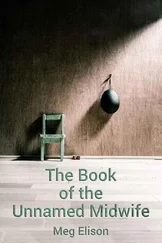Months before his reappearance, Becka had mentioned that he was trying to return. She wanted to give her mother reason to live. But Jane didn’t want him to come and she didn’t want to live. She had made peace with dying. She had watched him struggle for too long to pretend that struggling was profitable. If it was her turn to go, she would go. She would go peacefully.
Then he returned and she wanted to live.
If he could suffer like that, if he could endure such an ordeal. If he could be so valiant.
The equipoise she had struck was ruptured the minute he walked into the room. Going peacefully, that was history. She began to rage as he had raged.
Did he think it was the clinical trial? The clinical trial wasn’t what saved her.
He didn’t believe that. With him it was just working or failing to work. Cells lived or they died. The heart beat or stopped beating. Then the entire thing returned to ashes and dust. He’d come a long way from the man who once believed that God was in the trenches surrounding every atom, fighting the devil for the soul.
“There’s no soul,” he said. “No God and no soul.”
“What about your mind, all the miracles of your mind?”
“It’s captive.”
“Captive to what?”
“The body. The body’s decay.”
“You don’t believe that,” she said. “I don’t believe you believe that.”
He did. The medicine had set him right at last.
She stood up and went over to the window. She looked out for a while before turning and sitting on the ledge. “When you recover from an illness,” she said, “as I have, no matter what you thought you believed, you start to think maybe there’s something.”
“I wouldn’t know about that,” he said. “I’ve never recovered.”
“Don’t be self-pitying.”
“I’m not self-pitying,” he said. “Just stating the facts.”
He had walked and walked to get back to her, and now that she was home, there was nothing more to do. Returning to her, returning to her, returning to her again and again, was not a possible life. It was twice the challenge as the going because he was working on low energy and no sleep. He could do it when it was a matter of life and death. But now, now he needed to let himself rest when it came time to rest, and to move on when it came time to move on, and to do so in the direction of the moving on.
“What about the vacation?” she said. “We planned a safari.”
He didn’t reply. The safari had always been pure delusion.
If he left now, she told him, he would be leaving her worse off than when he found her. She would not want to live, but she would not want to go peacefully, either. She would rage, and her raging would be pointless.
She became deeply afraid and began to cry. He made no move to comfort her. He had kept his backpack on, which made it hard to read his intentions. Did he mean to leave now, that night?

Not wanting to wake the baby, he thought twice about ringing the buzzer so early in the morning. He settled himself on the stoop. Becka’s boyfriend rescued him an hour later, coming home from a late-night recording session, and brought him up to their third-floor walk-up where the coffee was brewing and Bob Dylan was playing low on the radio. Becka’s boyfriend said, “Look who I found.” Becka turned and showed surprise. She poured him a cup of coffee, which he drank on a vintage barstool with a sparkling red vinyl seat. Her boyfriend finished his beer and excused himself to get some shut-eye. He kissed Becka on the forehead and left the room. There was a certain unorthodox domestic tranquillity here that made her father happy to have witnessed.
She placed Jack in his arms while she went to the bedroom to change out of her pajamas. When she returned she was wearing a pair of denim coveralls and a faded 7UP T-shirt. She asked him if he wanted breakfast.
“No,” he said, “no breakfast this morning.”
“Let me make you some breakfast, Dad.”
“My iPod is a wasteland,” he said. “I wondered if you could give me some new music.”
She took his iPod and walked over to the computer with it. For the tenth time he requested her new CD but she wasn’t completely satisfied with the production and didn’t want to give it to him until it was perfect. He said she was acting unconscionably toward her biggest fan. He threatened to get down on his knees. He had every intention of getting that album before leaving. She gave in finally and uploaded it. He took off the backpack — to store the iPod, she thought. But then he put the iPod in his pocket. He put his arms around her. He went over to the crib where Jack was now lying contentedly on his back. He picked the baby up and held him above his head and brought his exposed belly down to his face, breathed in his baby’s scent, and kissed his smooth skin.
The phone was ringing when he shut the door behind him.
He crossed the George Washington Bridge and an hour later turned off the primary road and walked the sidewalk past the day-care center and the library that were nestled inside the residential neighborhood. The road dipped and came to a second primary road where he turned left and the traffic picked up again. Past the gas stations he walked to the overpass and followed the shoulder down the on-ramp to the divided highway where the cars washed past with an old familiarity that quickly settled back in his ears.
He regained an eye for those locations that best served his needs for rest and renewal. He landed on a final redoubt of trees, he slept behind deserted buildings. There were occasional run-ins with unsympathetic authorities who pressed on him their provincial dogmas of safety and propriety. People did not like him on their private lawns or inside their public parks. He made no appeal to their sympathy. He simply packed up and moved on. He had proven long ago that there was no circumstance under which he could not walk if he put his mind to it.
He never returned to New York. Months passed before he could even bring himself to call home again.
Three years after leaving, he drifted into a community library in what remained of central Louisiana to use the free computers alongside the homeless and the refugees. Becka had sent him an email that had languished in his inbox for over a month. She told him of test results that confirmed with near certainty that her mother was no longer in remission. What Becka did not mention was that those tests had come in months ago and that Jane had asked Becka to wait until the end to tell him, so that he wouldn’t be tempted to return to her bedside.
He called that afternoon. He stood on the exposed side of a gas station as a heat wave issued from an incinerating and merciless sun.
“Why do you put any stock in those test results?” he asked Jane. “What are your symptoms?”
“My symptoms?” she said.
“You’ve already proven it was bogus, Jane. The whole thing was bogus.”
“It’s different this time.”
“What are you saying? That you’re dying? Who’s telling you that you’re dying?”
“Nobody needs to tell me,” she replied. “I’m dying. They tell me I’m dying because I’m dying.”
He had to inform her that she wasn’t dying. She simply wasn’t trying hard enough to overcome the nihilism of the body. The soul was inside her doing the work of angels to repulse the atheistic forces of biology and strict materialism and she needed to do her part to show God which side she was on. He suggested going for a jog or cooking a large meal.
His medication required tweaking from time to time, and then the clarity would come flooding back to him. He spoke a mile a minute. She could hardly get a word in. She asked him if he was taking his medication and he became furious. The obnoxious certainties of some people! The rigid orthodoxies of cause and effect! Whenever anyone was presented with the one true eschatology and the work of the divine, they wanted to drag those verities through the rivulets of shit dug and tended to by Western medicine. They were the drugged zombies, not him. He wasn’t crazy. He just saw things others could not see.
Читать дальше













